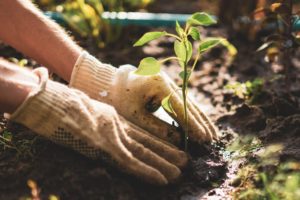Reflecting on 5 Years at DVN – 5 Things I’ve Learned
In September of 2017, I joined the AmeriCorps Public Allies program and was placed with Domestic Violence Network to assist with capacity building efforts. Little did I know at the time that I had just started a journey that would continue over the next five years of my life!
Upon starting at DVN, I had no experience working in the domestic violence field, and I was also brand new to non-profit work in general. It was certainly a time period full of new beginnings, and with those new beginnings I also began to learn lessons that would follow me throughout the next several years of my work!
If I’ve learned anything these past five years, it’s that this work isn’t easy by any means. I am so thankful for everyone working within this field to foster healthier relationships and communities – your work matters so much!
As I’ve come to this milestone of my work, I have reflected a lot on what working in violence prevention has taught me. Let me first say, the lessons are honestly countless – I could never put all that I have learned into a single write up, because we’d be here for a long time if I tried to!
However, I would love to share five major lessons that I have learned over the past five years. I hope these lessons are helpful to hear, and maybe inspire you to think about the journey that your own life and career has taken you on!
—
1. Change takes a long time, but that doesn’t mean it’s not worth the effort.
Working in violence prevention has definitely taught me one tough lesson – I may not ever see the long term impact of the work that we are doing. The mission of DVN is to change the culture that leads to domestic violence. Sounds simple enough, right? Changing a culture around interpersonal relationships, education, and communities doesn’t happen overnight though – it doesn’t even happen in the course of a year!
The fact of the matter is, that this change will play out over generations. It starts with sharing ideas and information, but the real change is what is done with those ideas. That doesn’t mean the change isn’t happening though! Sometimes, just remembering that the information we share is planting seeds for a healthier future is the important message to focus on. A healthier future is the ultimate goal, and we can make that happen.
2. If we want to make change, we have to look at the roots of an issue.
 I like to think about this in the context of plant care. If you’ve got a rotting plant, oftentimes that rot extends down to the roots of the plant itself. With that in mind, the issue around the plant is never going to be fixed without examining and addressing the root of the issue (in this case the literal roots). So let’s think about this in the context of violence prevention!
I like to think about this in the context of plant care. If you’ve got a rotting plant, oftentimes that rot extends down to the roots of the plant itself. With that in mind, the issue around the plant is never going to be fixed without examining and addressing the root of the issue (in this case the literal roots). So let’s think about this in the context of violence prevention!
We know that at the root of violence is trauma. With that knowledge, we can’t ignore trauma within our conversations around violence! However, trauma comes from many places. It’s not just interpersonal, or within our families and communities. Trauma happens systemically as well. We have to take a look at these systemic structures and how they are causing harm if we want to even begin to tackle the issue of trauma and violence. Digging for those roots of trauma is key, if we want to begin any sort of transformative change.
3. Education matters.
This may sound basic, but it really does make such a difference. Having conversations within our communities can spark ideas that can lead to long standing change. Education is the literal seeds that we plant, and we shouldn’t take that task lightly.
4. Prioritizing healthy boundaries with our work is crucial.
This has been a tough, long standing lesson for me. Learning what our boundaries are, and advocating for those needs is a very personal journey, but one that we all must take in order to take care of ourselves. Rest is necessary, time away from heavy topics is vital, time for the fun activities we love is not time wasted! There is always a need for balance in life, and holding space for joyful things is something that every human should have a right to, and take time for. These joyful moments make it easier to come back to work that, while important, can also be emotionally draining.
5. We can’t fix everything, but we can do so much when we all bring our talents to the table!
 I know that I have had points throughout my time in this work where I have felt completely overwhelmed by the trauma of the world. Sometimes, seeing all the pain that is happening in the world makes it feel as if what I am doing will never be enough. That is not the case though. As humans, we only have the capacity to do so much. When we are all bringing our unique perspectives, experiences, and talents to the table – that is when we start to see beautiful things unfold.
I know that I have had points throughout my time in this work where I have felt completely overwhelmed by the trauma of the world. Sometimes, seeing all the pain that is happening in the world makes it feel as if what I am doing will never be enough. That is not the case though. As humans, we only have the capacity to do so much. When we are all bringing our unique perspectives, experiences, and talents to the table – that is when we start to see beautiful things unfold.
What you can do is so important. The experiences you bring to the table matter. Our collective experiences and talents, well that has so much more potential than what we can conceptualize alone. Know that your abilities are important, and unique to you.
—
These lessons are ones that I know others have encountered in their lifetimes – they are not unique to me and my experience. These are the lessons that have consistently shaped and followed me over the last five years, though. I’m excited to share these experiences with you. I am also excited to see what I will learn in five more years doing this work!
By Ash Rathwell, Training Services Manager at DVN
